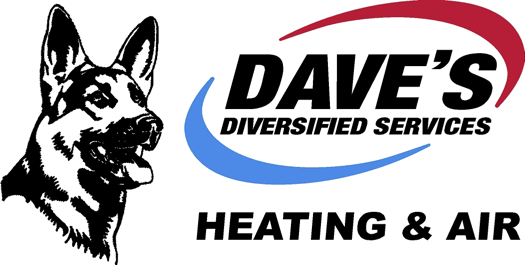
Buying your first home is exciting. You’re probably trying to keep track of numerous details about making the right choice. We believe that understanding your potential new HVAC system is vital. The property’s HVAC system represents a significant investment and source of potential long-term costs, illustrating why a detailed inspection should be a top priority for first-time homebuyers.
In the following guide, we’ll share seven tips for discovering all there is to know about a home’s heating and cooling system. And if you want a more in-depth opinion from the pros, don't hesitate to contact Dave's Diversified Services. Our seasoned technicians can help you compare your options with industry insights you won’t find elsewhere.
1. What HVAC System Are You Working With?
Start by identifying what kind of HVAC system the home has. Furnaces generally last longer compared to air conditioners, and newer types of HVAC products like heat pumps boast average life spans that are impressively long. Getting the details on the make and specific model gives you a clear idea of how much routine maintenance it might need.
2. How Old Is the Current HVAC System?
Another good idea is to find out how old the HVAC system is when you're considering a new home. In general, HVAC systems should survive for around 10-12 years. Knowing when it was installed helps you plan for possible repair needs or considerations if it might shut down for good. Older systems are at a higher risk of problems, so planning ahead of time for a replacement unit might be needed faster than expected.
3. Does the System Have a Warranty?
Be sure to check the HVAC system is covered by a warranty. If it is, you’ll appreciate how it can lighten the load for maintenance expenses. HVAC warranties often cover parts and labor, but it's important to note that details will vary. Don’t forget to look into any terms you don’t recognize to ensure you understand your coverage and any possible out-of-pocket costs.
4. When Was the Last Time It Received Maintenance?
Don't forget to check the maintenance history of the HVAC system, if such information is accessible. This service history can demonstrate if there have been regular problems or how much upkeep was provided. Ask about records for key tasks like filter changes, which means it enjoyed more regularly scheduled tune-ups.
5. Are You Aware of the System’s Energy Efficiency Ratings?
Selecting a system with great energy efficiency can lead to lower utility bills and a smaller environmental impact. Locate the seasonal energy efficiency ratio (SEER) ratings for air conditioning along with the annual fuel utilization efficiency (AFUE) for furnaces. High SEER ratings mean more efficient cooling throughout the season, while strong AFUE ratings mean the fuel is more effectively burned for useable heat.
6. Can You Spot Trouble After Your Own Inspection?
Even if you don’t have experience in HVAC systems, you can still take a moment to inspect the HVAC system on your own. Keep an eye out for potential issues that might have been overlooked. This can mean bizarre noises, spots with uneven heating or cooling and attempts at concealing any serious damage.
7. Have You Asked Your Local HVAC Professional?
If you're not quite sure about the overall state of the HVAC system, it's wise to get an assessment and recommendation from certified HVAC technicians. They can spot things you might miss, such as leaks in the refrigerant, wiring issues or inefficient ductwork.
A Call with Dave's Diversified Services Simplifies Your Home-Buying Journey
Finding your first home ought to be exciting, and Dave's Diversified Services wants to ensure that doesn’t change. Reach out with us at 540-636-3396. We can talk about how our HVAC services give you peace of mind, giving you what you need to step into your new home with confidence.
